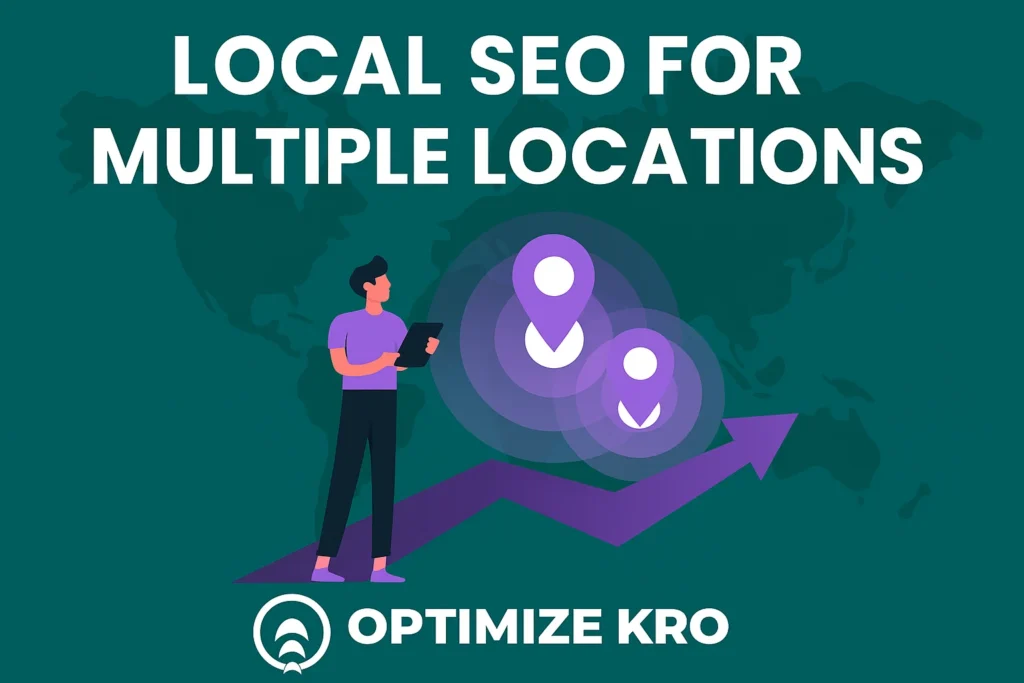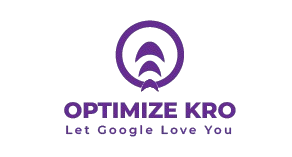Local SEO is crucial for businesses looking to increase their visibility in specific geographic areas. Whether you’re running a single-location store or managing multiple branches, optimizing your website for local search can have a significant impact on your business’s performance. This comprehensive guide will walk you through everything you need to know about Local SEO for multiple locations, covering essential aspects such as costs, timelines, tools, strategies, Google My Business (GMB), on-page SEO, off-page SEO, technical SEO, local citations, and more.
- What Is Local SEO?
- The Importance of Local SEO for Multiple Locations
- Key Components of Local SEO for Multiple Locations
- What Our Clients Say
- Tools for Local SEO for Multiple Locations
- Cost of Local SEO for Multiple Locations
- Timeline for Local SEO
- FAQ – Local SEO for Multiple Locations
- Conclusion

What Is Local SEO?
Local SEO (Search Engine Optimization) refers to the process of optimizing your website and online presence to rank higher in local search engine results. Unlike general SEO, which targets a broader audience, local SEO focuses on increasing your visibility in a particular geographic location. For businesses with multiple locations, Local SEO becomes even more important, as it allows them to target different audiences in each city, state, or region.
The Importance of Local SEO for Multiple Locations
When you manage multiple locations, optimizing each one for local search helps ensure that each branch or office is easily found by people in the respective area. According to Google, 46% of all searches have local intent, which means they are specifically looking for services or businesses near them.
By implementing local SEO for each location, you can:
- Increase organic traffic to your website
- Rank higher on Google Maps
- Drive more foot traffic to your physical stores
- Attract more local customers and leads
- Build trust with your audience by appearing in local searches
Key Components of Local SEO for Multiple Locations
To effectively optimize your website for multiple locations, there are several key elements to consider. Let’s explore these components in detail.
1. Google My Business (GMB)
Google My Business (GMB) is one of the most important tools for local SEO. It allows businesses to create a profile on Google, making it easier for customers to find you in local search results and on Google Maps. For businesses with multiple locations, you need to create a unique GMB profile for each location.
Steps to Optimize Your GMB for Multiple Locations:
- Create Separate Listings: Each location should have its own GMB listing with the correct address, phone number, and hours of operation.
- Accurate and Consistent NAP: Ensure that your Name, Address, and Phone number (NAP) are consistent across all listings. This is crucial for local SEO, as discrepancies can confuse search engines and affect your rankings.
- Update Your Business Hours: Make sure to update the business hours for each location, including special hours for holidays.
- Add Local Photos: Upload high-quality photos of your business location. This will help attract more customers and improve engagement with your GMB profile.
- Encourage Reviews: Positive customer reviews are vital for local SEO. Encourage happy customers to leave reviews on each location’s GMB profile.
2. On-Page SEO for Multiple Locations
On-page SEO refers to the actions you take on your website to optimize it for better search engine rankings. For businesses with multiple locations, on-page SEO must be tailored to each location’s specific needs.
Key On-Page SEO Elements for Multiple Locations:
- Location-Specific Pages: Create a unique page for each location on your website. These pages should include the name of the city or region, specific services, and localized content that targets local keywords.
- Optimized Title Tags and Meta Descriptions: Each location page should have a unique title tag and meta description that includes the target location and relevant keywords.
- Structured Data Markup (Schema): Implement structured data markup on each location page to help search engines understand the location-specific information, such as the address, phone number, and business type.
- NAP Consistency: Your business’s Name, Address, and Phone number (NAP) should appear prominently on every location page, matching the information on your GMB profile.
3. Off-Page SEO for Local SEO
Off-page SEO refers to the actions you take outside of your website to improve your rankings. For local SEO, off-page SEO is largely focused on building local authority through backlinks and mentions.
Key Off-Page SEO Strategies for Multiple Locations:
- Local Backlinks: Secure backlinks from authoritative local sources, such as local news outlets, business directories, chambers of commerce, and local blogs.
- Local Mentions: Get your business mentioned in local press articles, directories, and websites. These mentions can help improve your local authority and signal to search engines that your business is reputable in that location.
- Social Media Engagement: Actively engage with your local audience on social media platforms. Share location-specific content to build awareness and foster connections.
4. Technical SEO for Local SEO
Technical SEO ensures that your website is technically optimized to improve user experience and search engine crawlability. It’s crucial for both overall SEO and local SEO, especially when optimizing multiple locations.
Key Technical SEO Aspects for Multiple Locations:
- Mobile-Friendliness: Ensure your website is mobile-friendly, as more and more users are searching for local businesses on their mobile devices.
- Fast Loading Speed: A fast website improves the user experience and helps your website rank higher in search results. Optimize images, use caching, and minimize redirects.
- URL Structure: For businesses with multiple locations, it’s important to have a clear URL structure. For example, use URLs like
yourwebsite.com/location/city-name. - XML Sitemap: Include all of your location-specific pages in your XML sitemap to ensure search engines can crawl them efficiently.
5. Local Citations for Multiple Locations
Local citations are online mentions of your business’s NAP (Name, Address, Phone number). These citations help search engines verify your business’s legitimacy and relevance in a specific location.
Tips for Managing Local Citations:
- Submit to Local Directories: Make sure your business is listed on local business directories, such as Yelp, Yellow Pages, and local-specific platforms.
- Ensure Consistency: Just like with your GMB profile, it’s important to maintain consistency in your NAP across all citations to avoid confusing search engines.
- Local Aggregator Sites: Submit your business to local aggregators like Foursquare, MapQuest, and other location-based platforms that help boost local rankings.
What Our Clients Say
Trusted by contractors and local businesses for proven Local SEO Services.
John M. – General Contractor
“These guys transformed my Google Maps ranking. More calls, more local leads, and better visibility!”
Sarah L. – Roofing Business
“Within 3 months, my business went from page 3 to the top 3 listings. Highly recommend their Local SEO service!”
David K. – Plumbing Services
“Affordable and effective SEO. My local service calls doubled in less than 90 days.”
Tools for Local SEO for Multiple Locations
To effectively implement local SEO across multiple locations, you’ll need to leverage the right tools. These tools can help with keyword research, backlink building, citation management, and more.
Essential Tools for Local SEO:
- Google My Business: For managing your GMB listings and monitoring reviews.
- Moz Local: A tool that helps you manage local listings and ensure consistency across platforms.
- SEMrush: A comprehensive SEO tool that offers keyword research, backlink analysis, and site audit capabilities.
- Ahrefs: For building high-quality backlinks and monitoring your website’s overall health.
- Yext: A tool for managing your business’s local listings across multiple directories and platforms.
- Whitespark: Great for finding local citation opportunities and tracking your local rankings.
Cost of Local SEO for Multiple Locations
The cost of local SEO for multiple locations can vary significantly depending on several factors, such as the number of locations, the competition in each area, the level of optimization required, and the expertise of the SEO provider.
Here’s a rough breakdown of the costs:
- DIY Approach: If you’re handling local SEO in-house, costs may range from $500 to $2,000 per month, depending on the tools and resources you need to use.
- Agency Services: If you hire an SEO agency, the cost can range from $2,000 to $10,000 per month, depending on the complexity and number of locations.
- Freelance SEO Consultant: Hiring a freelance consultant may cost anywhere from $1,000 to $5,000 per month.
Timeline for Local SEO
Local SEO can take time to show results, especially for businesses with multiple locations. On average, it can take 3 to 6 months to see significant improvements in rankings, traffic, and leads. However, it’s essential to understand that local SEO is an ongoing process, and continual optimization is needed to maintain and improve results over time.
FAQ – Local SEO for Multiple Locations
Q1: How do I manage local SEO for multiple locations?
To manage local SEO for multiple locations, create individual location pages, optimize Google My Business profiles for each branch, ensure NAP consistency, build local citations, and use location-specific keywords.
Q2: How do I handle NAP consistency across multiple locations?
Make sure your Name, Address, and Phone number are consistent across all online platforms, including your website, Google My Business, local citations, and directories. Tools like Moz Local and Yext can help maintain consistency.
Q3: Can I use the same content for multiple location pages?
No. Each location page should have unique, location-specific content that targets the services and keywords relevant to that area. Duplicate content can harm your SEO rankings.
Q4: How much does Local SEO cost for multiple locations?
The cost depends on factors like the number of locations, competition, and SEO agency or tools you use. It can range from $500 to $10,000 per month.
Q5: How long does it take to see results from local SEO?
It typically takes 3 to 6 months to see noticeable improvements in local rankings, traffic, and leads.
Conclusion
Local SEO for multiple locations is an essential strategy for businesses looking to attract customers from specific areas. By implementing best practices for Google My Business, on-page and off-page SEO, technical SEO, local citations, and more, you can significantly improve your rankings and visibility in local search results. With the right tools and strategies, your business can effectively dominate local search across multiple locations, driving traffic, leads, and sales.

Gulfam Qamar is a seasoned Local SEO expert with a proven track record of helping businesses boost their online visibility and dominate local search results. With deep expertise in Google Business Profiles, on-page optimization, and local citation strategies, Gulfam helps brands connect with nearby customers and grow sustainably. When he’s not optimizing websites, he’s sharing actionable SEO tips and insights to empower small businesses in the digital space.

